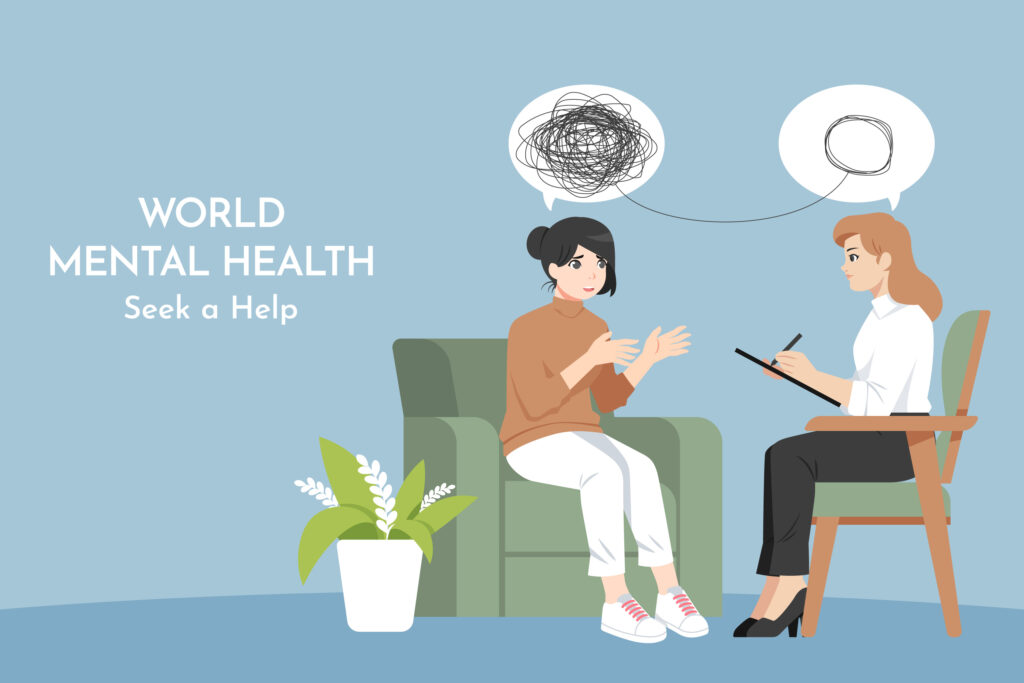Elevating Care: Standards of Mental Health Nursing
Mental health nursing is a crucial aspect of healthcare, particularly in a diverse and populous country like India. This article explores the standards of mental health nursing in India, highlighting the challenges, advancements, and future prospects in this critical field.
Also Read: Transforming Lives: Government Mental Health Centre Thrissur
Historical Context of Standards of Mental Health Nursing in India
India’s approach to mental health nursing has evolved significantly over the decades. Initially, mental health care was often stigmatized and overlooked, but gradual reforms and awareness campaigns have brought about significant changes.

Current Standards and Regulations
The Indian Nursing Council and state-specific health authorities are two important organizations that regulate the practice of mental health nursing in India. These bodies ensure that nurses adhere to established standards of care and professionalism.
Skills and Qualities of a Mental Health Nurse
Effective mental health nursing requires a blend of clinical expertise and interpersonal skills. Nurses must possess empathy, patience, and the ability to communicate effectively with patients and their families.
Challenges Faced by Mental Health Nurses
Despite its importance, mental health nursing faces numerous challenges in India. Shortages of trained professionals, particularly in rural areas, and persistent stigma surrounding mental illness are significant barriers.
Role of Technology in Mental Health Nursing
Technology has revolutionized mental health care delivery in India. Telemedicine platforms and digital health tools enable nurses to reach underserved populations and provide timely interventions.
Education and Training Requirements
Becoming a mental health nurse in India requires specialized education and training. With the addition of practical experience, prospective nurses typically pursue bachelor’s or master’s degrees in psychiatric nursing.
Best Practices in Mental Health Nursing
Successful mental health interventions often involve a multidisciplinary approach, with nurses collaborating closely with psychiatrists, psychologists, and social workers to provide holistic care.
Integration of Traditional and Modern Practices
India’s rich cultural diversity influences mental health care practices. Integrating traditional healing methods with modern psychiatric treatments can enhance patient outcomes, though challenges such as compatibility and acceptance persist.
Support Systems for Mental Health Nurses
Recognizing the demanding nature of their work, healthcare institutions in India increasingly offer support systems for mental health nurses. These include counseling services, stress management programs, and peer support groups.
Future Trends in Mental Health Nursing
The field of mental health nursing in India is poised for significant growth. Emerging roles in community mental health, advocacy for patient rights, and advancements in therapeutic techniques are shaping the future of the profession.
Impact of COVID-19 on Mental Health Nursing
The COVID-19 pandemic has underscored the importance of mental health nursing. Nurses have played a critical role in providing emotional support to patients and adapting care practices to meet the challenges posed by the pandemic.
Success Stories in Mental Health Nursing in India
Across India, mental health nurses are making remarkable contributions to their communities. From pioneering research initiatives to community outreach programs, their dedication and innovation are transforming mental health care.
Conclusion
Excellence in mental health nursing is vital for addressing the complex challenges faced by individuals and communities in India. By promoting professionalism, compassion, and innovation, we can ensure that mental health nurses continue to play a pivotal role in improving quality of life.
FAQs
Q: What qualifications do you need to become a mental health nurse in India?
To become a mental health nurse in India, you typically need a bachelor’s degree in nursing with a specialization in psychiatric nursing.
Q: How can technology improve mental health care in remote areas?
Technology such as telemedicine enables mental health professionals to reach patients in remote areas, providing timely consultations and interventions.
Q: What are the main challenges faced by mental health nurses in India?
Challenges include workforce shortages, stigma surrounding mental illness, and the need for continuous professional development
Q: How does mental health nursing differ from general nursing?
Mental health nursing focuses specifically on the care and treatment of individuals with mental health disorders, requiring specialized knowledge and skills.
Q: What role does advocacy play in mental health nursing?
Advocacy by mental health nurses helps promote patient rights, reduce stigma, and improve access to mental health care services.




